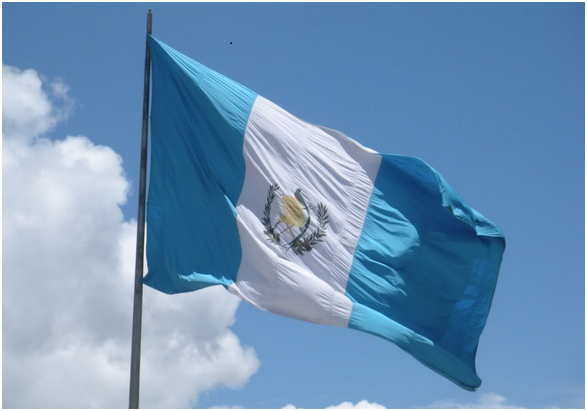
Dec 19, 2018 | Comunicados de prensa, Noticias
Una nueva acción se inicia en contra de la Comisión Internacional contra la Impunidad en Guatemala (CICIG). En este caso, se ordena el abandono del país de once funcionarios de dicha comisión, en un lapso de setenta y dos horas, a partir de la notificación respectiva. La Comisión Internacional de Juristas (CIJ) considera que este acto va dirigido específicamente a afectar los procesos penales que se siguen por actos de corrupción en contra de funcionarios de alto nivel.
La CICIG actúa como querellante adhesivo de diferentes procesos por casos de corrupción y otros delitos o bien realizan investigaciones para identificar a posibles responsables. A las y los abogados, policías o investigadores que participan en estos procesos (Caso La Línea, Caso relacionados con corrupción en la Policía Nacional Civil, Caso Comisiones Paralelas y otros igualmente importantes) son precisamente a quienes se les está intentando expulsar del país.
Ramón Cadena, Director de la CIJ para Centroamérica expresó al respecto: “Llama poderosamente la atención que uno de los investigadores de la CICIG que está siendo afectado con esta medida es el investigador legal a cargo del caso de corrupción en el Registro General de la Propiedad, en el que están siendo procesados el hijo y hermano del Presidente de la República.”
Este nuevo acto gubernamental afecta seriamente la justicia y el Estado de Derecho. Constituye además, una violación flagrante del artículo 10 numeral 4. del Convenio firmado entre el Estado de Guatemala y la Organización de las Naciones Unidas para el establecimiento de la Comisión Internacional contra la Impunidad en Guatemala, que contempla el compromiso del Gobierno de Guatemala en los términos siguientes:
“Velar por que ningún personal de la CICIG, sea personal nacional o internacional, sea de modo alguno objeto de abusos, amenazas, represalias o intimidaciones, en virtud de su estatus de personal de la CICIG o por el desempeño de su trabajo como personal de la CICIG.”
“Lamentamos mucho que sea precisamente a los funcionarios de la CICIG que actúan como querellantes adhesivos en casos de alto impacto, a quienes se les esté imponiendo un castigo por el desempeño de sus funciones en la lucha contra la corrupción e impunidad. Está claro que las autoridades del Gobierno de Guatemala, siguen haciendo todo lo posible para apartar a la CICIG de su camino”, expresó Cadena.
A esto hay que agregar que la función de la abogacía está siendo afectada. De esta manera, se está obstaculizando el trabajo de abogados debidamente colegiados y por lo tanto, los Principios Básicos de la ONU sobre la función de los abogados, también están siendo violados. Según el principio número 16 literal a): “Los gobiernos garantizarán que los abogados: a) puedan desempeñar todas sus funciones profesionales sin intimidaciones, obstáculos, acosos o interferencias indebidas…”
Cadena afirmó: “La CIJ expresa su profunda preocupación por el hecho de que varios de estos funcionarios son abogados y que actúan como querellantes en los casos de alto impacto que apoya CICIG. El Colegio de Abogados de Guatemala debería actuar en defensa de sus agremiados.”
“Por otro lado, el Estado de Guatemala debe cumplir con los enunciados del derecho internacional de los derechos humanos y debe investigar y castigar casos de corrupción. La presencia de la CICIG en el país contribuye a que el Estado de Guatemala cumpla con sus obligaciones internacionales”, Cadena agregó.
El Director de la CIJ para Centroamérica concluyó afirmando: “Con estas medidas arbitrarias se está causando una alteración del orden constitucional en Guatemala, que afecta gravemente el orden democrático. Como Estado, Guatemala debe asegurar que se tome medidas efectivas para combatir la corrupción, consistentes con sus obligaciones internacionales en relación a los derechos humanos entre otras obligaciones. La CICIG es una de las experiencias más exitosas de combate contra la corrupción en el mundo; por ello, las autoridades del Estado de Guatemala deberían apoyarla, en vez de obstaculizar su trabajo y de esa forma, obstruir la justicia.”
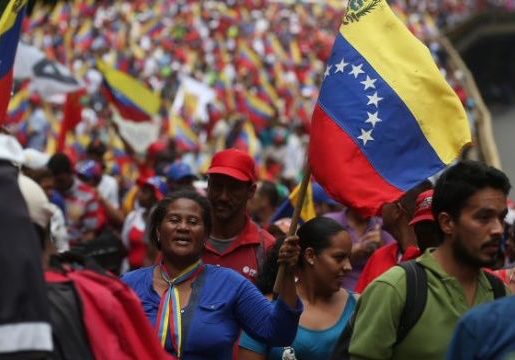
Dec 11, 2018 | Advocacy
In a document presented to the Inter-American Commission on Human Rights, ICJ Vice President Carlos Ayala explains that Venezuela’s denunciation of the OAS Charter remains without effect.
In April 2017, Venezuela lodged a notification with the Secretary General of the Organisation of American States (OAS) that Venezuela denounced the OAS Charter in order the withdraw its membership from the organisation.
In a document presented to the Inter-American Commission on Human Rights on 4 December 2018, ICJ Vice President Carlos Ayala explains why the denunciation is unconstitutional and violates binding principles of international law.
According to Professor Ayala, who served as President of the Inter-American Commission between 1996 and 1999, the OAS Charter holds a constitutional status under Venezuela’s domestic law that does not permit withdrawal from the Charter on the basis of political interests.
Additionally, the Charter establishes that it will cease to be in force following a notification of denunciation only after the denouncing State has fulfilled its obligations under the Charter. Since Venezuela is the subject of several pending matters concerning its purported failure to fulfil Charter obligations, its denunciation remains without effect.
Venezuela-OAS denunciation-Advocacy-2018-SPA (see full document, in Spanish)
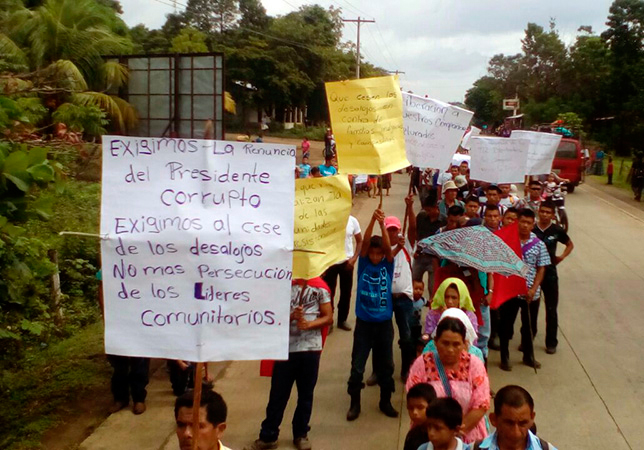
Nov 30, 2018 | Eventos
La conferencia sobre el tema ‘Las Empresas y los Derechos Humanos en el Departamento de Izabal, Guatemala’ que se llevó a cabo el 29 de noviembre en la Universidad de Ginebra, fue organizada por el Departamento de Derecho Público Internacional y las Organizaciones Internacionales de la Facultad de Derecho de la Universidad de Ginebra en colaboración con la Ciudad de Ginebra.
El evento fue moderado por la Dra. Antonella Angelini del Departamento de Derecho Público Internacional, experta en empresas y derechos humanos. Participaron también Ramon Cadena, Director de la oficina de la CIJ para America Central, Sandra Ratjen, de la Franciscans International, Maynor Alvarez, Director del Departamento de Asuntos Comunitarios de la CGN, Sra. Amalia Caal Coc, de la Fundación Guillermo Toriello, y el Prof. Marco Sassoli, Comisionado de la CIJ.
El principal problema discutido fue el impacto sobre las comunidades locales de las operaciones de la Compañía Guatemalteca de Níquel (CGN-PRONICO), una compañía minera de níquel en El Estor, propiedad de Solway Investment Group, compañía registrada en Zug, Suiza.
Ramón Cadena, Director de la oficina de la CIJ para América Central, presentó un resumen de la situación en Guatemala, un país plagado por problemas de corrupción, violencia e impunidad. Enfatizó la necesidad de fortalecer el estado de derecho. Dijo que en el Departamento de Izabal existe mucha preocupación respecto a los impactos de la empresa sobre las comunidades locales de indígenas Q’eqchis. Explicó que estas comunidades no se oponen al desarrollo en sí, pero quieren asegurarse que esta actividad beneficiaría a la mayoría de la población. Concluyó diciendo que la iniciativa popular suiza referente a la responsabilidad social corporativa era sumamente importante ya que implicaría que las multinacionales basadas en Suiza serían responsables de los actos de sus sucursales en otros países.
En sus comentarios finales, el Prof. Marco Sassoli recomendó que se organizara una misión internacional a Izabal en Guatemala con el objetivo de tener una mejor comprensión de los problemas que se presentan a las comunidades locales de Q’eqchis como resultado de las operaciones mineras de níquel de la compañía Solway.
Un informe más detallado sobre la conferencia es disponible acá.
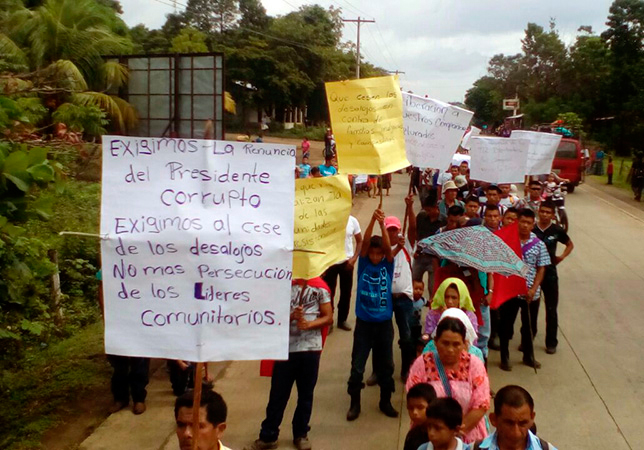
Nov 30, 2018 | Events
The conference on business and human rights in the Department of Izabal, Guatemala was held at the University of Geneva on 29 November 2018 and co-hosted with the Department of Public International Law and International Organization, Faculty of Law of the University of Geneva and the City of Geneva.
The main issue under review was the impact on the local communities of the operations of the Compañia Guatemalteca de Nickel (CGN-ProNico) a nickel mining company in El Estor, wholly owned by Solway Investment Group, a company registered in Zug, Switzerland.
Speaking at the conference, Prof. Marco Sassòli, a Commissioner of the International Commission of Jurists (ICJ), recommended there be an international mission to Izabal, Guatemala in order to understand the problems facing the local Q’eqchis communities as a result of the Solway nickel mining operations.
Other speakers included Ramon Cadena, the Director of the ICJ Central America office, Amalia Caal Coc, from the Guillermo Torielo Foundation in Izabal, Guatemala, Maynor Alvarez, the manager of the CGN Community Affairs Department, and Sandra Epal Ratjen, Deputb Executive Director at Franciscans International.
Dr Antonella Angelini from the Department of Public International Law and an expert in business and human rights was the conference moderator.
A more detailed account of the conference proceedings is available (download).
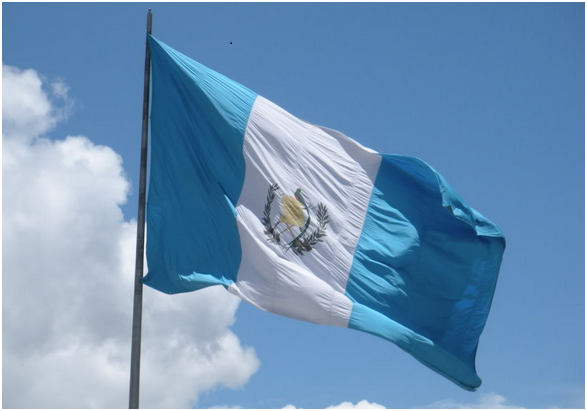
Nov 28, 2018 | Events, News
A conference on the situation of business and human rights in Izabal, Guatemala will be held on 29 November 2018 at UNIMAIL University of Geneva at 6:30 pm.
THIS CONFERENCE IS IN FRENCH AND SPANISH ONLY
The conference is co-organised by the International Commission of Jurists, the Department of International Public Law and International Organisation, Faculty of Law, University of Geneva and the Town of Geneva.
Speakers at the conference include Ramon Cadena, the Director of the ICJ Central America Office, Amalia Caal Coc, a local community leader from the Guilermo Torielo Foundation, Maynor Alvarez, Director of Community Relations from the Guatemalan Nickel Company, Solway Group, and Sandra Ratjen, Franciscans International. The panel moderator is Dr Antonella Angelini from the Department of International Public Law and International Organisation.
The meeting room is R070 at UNIMAIL, There will be a discussion after the panel. Entrance is free and there will be interpretation in French and Spanish.
Flyer in Spanish (PDF)
Flyer in French (PDF)









